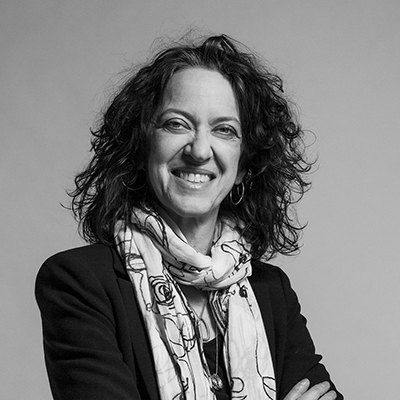Practice, practice, practice.
Lessons from my grandfather.
“Now, more than ever.” Has a set of words ever grown so tiresome, so quickly? Admittedly, those words provide a shorthand that acknowledges the changes all around us. Today’s world feels different, and despite our desire to get a handle on things, we honestly don’t know what to expect next.
Does that mean we just throw up our collective hands and climb into a (socially distant) hole?
Of course not. In fact, these times afford a unique and precious opportunity to focus on the things that are right in front of us that strengthen our ability to forge ahead. Taking a “now, more than ever” approach lets us take stock of the here and now and appreciate the value of the things that have been there all along. Like a small flower growing out of a sidewalk crack, noticing a tiny thing of beauty can ground us in what’s important, and make everything better.
Tal Ben-Shahar is a Harvard-educated scholar who writes and teaches on the science of positive psychology. His work focuses in part on the benefits — psychological and physical — of being happy. Yes, being happy is not just something your friends and family want for you; it has empirical benefits to you as a person, as a member of society and as a productive employee. It’s science!
So what does that mean for all of us?
It’s easy to overlook the reasons we have to celebrate. It’s easy to default to the idea that things are out of our control. What’s hard — or what SEEMS hard — is giving ourself permission to find joy. But the good news is: It is easier than we think, and way more beneficial than we realize. Weirdly, it’s also a skill we can develop.
Being happier (and therefore being more productive!) is a trainable behavior.
So how do we do it? Just like an old joke my grandfather used to tell: “A guy stops another guy on the street and says, ‘Excuse me, how do I get to Carnegie Hall?’ The other guy says, ‘Practice, Practice, Practice!’”
The key to finding happiness when you don’t feel it automatically lies in practicing it. Here are some things you can try:
Be mindful. Take notice of your surroundings, like that flower in the sidewalk.
Write it down. Capture the things you’re grateful for; do this for five minutes or less every day — you’ll be amazed at how it makes you feel.
Connect with others. Virtual chatrooms let you catch up with people you’d forgotten about. Isn’t that great? Time and space used to be constraints, but now we find ways to connect with people from our past or those who are far away. What’s more, there’s renewed focus on little daily human interactions — the two-second conversation with the grocery clerk or the lady who always hands you your coffee at the drive-through. These moments of connection add texture and happiness to our lives.
Get outside. Do something with your physical self. You don’t have to become a triathlete (unless that’s your thing), but remember to reconnect with walking or inhaling deeply. Again: It’s science!
Blow a party horn. Metaphorically speaking, find an excuse to celebrate. When my kids were little, someone said that parents should try to “catch their kids being good.” In other words, go out of your way to find the good, and celebrate anything.
And while we’re on the subject of my grandfather’s jokes,
he used to tell another one: “Sam asks his friend, ‘Hey Abie! Why are you hitting your head against the wall?’ And Abie says, ‘Because when I stop, it feels SO good!’”
OK, so we’ve established that my grandfather may not have been one of the world’s comedic geniuses, but he loved to laugh (he’s the one on the far left of that picture up top), and I find a real lesson in the joke he told. While the world may throw us curveballs, beating ourselves up about it doesn’t make us any better equipped to adjust. In fact, stopping the head-beating and finding joy is exactly what we need to do. It’s not only good for ourselves, it’s good for our ability to be effective, compassionate and productive.
Um … now, more than ever!
About the Author
As EVP of Strategy and Planning at Bader Rutter, Pamela Narins’ perspectives inform all of our business and communications thinking. Pamela has served as a Global Planning Director at DDB and Director of Planning at Y&R, among other agencies. She helped win, design, and launch the fully integrated agency model for McDonald’s that placed human insights at the center of all brand and communications development. A graduate of the University of Chicago, she’s a lover of words, who can frequently be found nerding out behind a book, gesticulating madly with a fork, or drinking in every second with her teenage twins.
